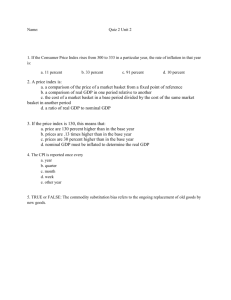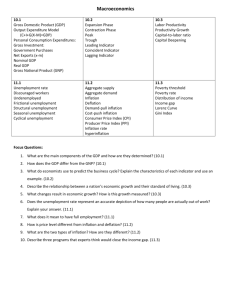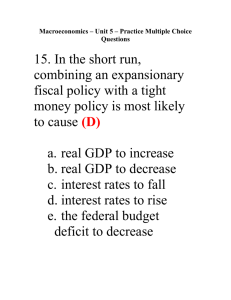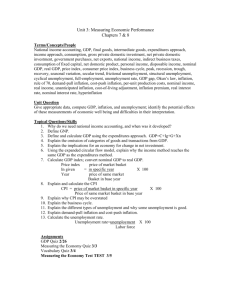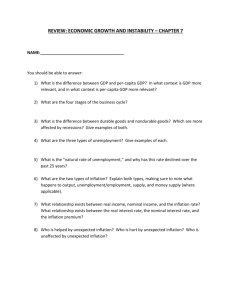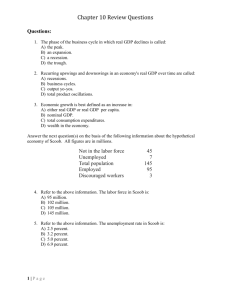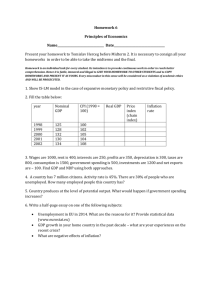Unit III Measuring the Economy
advertisement
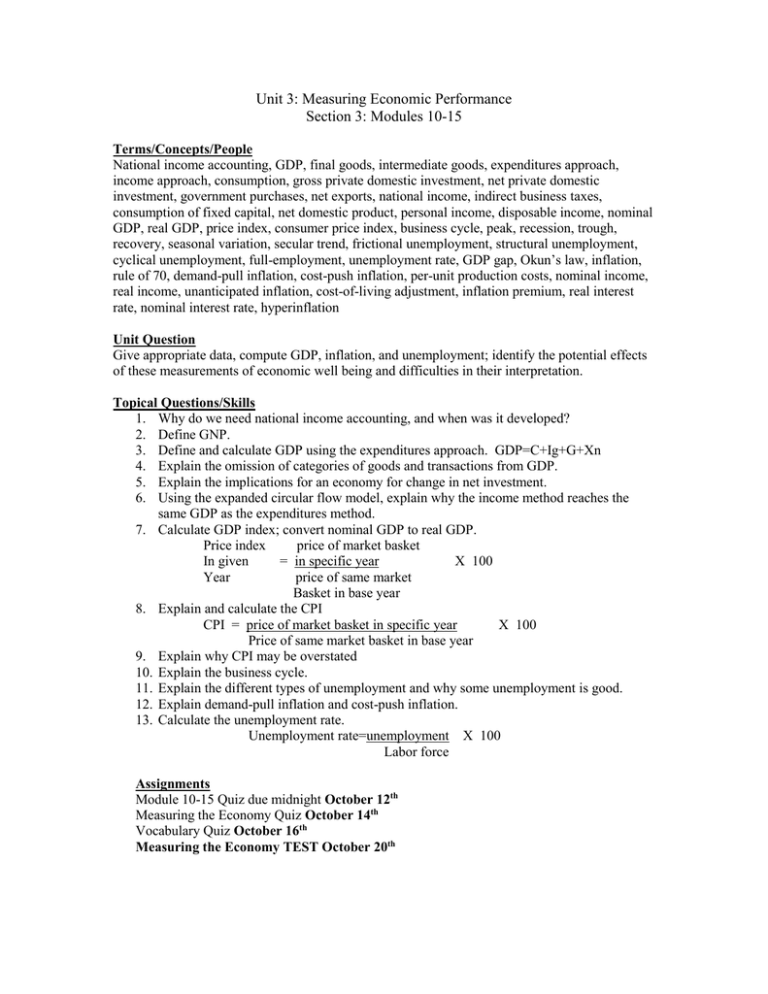
Unit 3: Measuring Economic Performance Section 3: Modules 10-15 Terms/Concepts/People National income accounting, GDP, final goods, intermediate goods, expenditures approach, income approach, consumption, gross private domestic investment, net private domestic investment, government purchases, net exports, national income, indirect business taxes, consumption of fixed capital, net domestic product, personal income, disposable income, nominal GDP, real GDP, price index, consumer price index, business cycle, peak, recession, trough, recovery, seasonal variation, secular trend, frictional unemployment, structural unemployment, cyclical unemployment, full-employment, unemployment rate, GDP gap, Okun’s law, inflation, rule of 70, demand-pull inflation, cost-push inflation, per-unit production costs, nominal income, real income, unanticipated inflation, cost-of-living adjustment, inflation premium, real interest rate, nominal interest rate, hyperinflation Unit Question Give appropriate data, compute GDP, inflation, and unemployment; identify the potential effects of these measurements of economic well being and difficulties in their interpretation. Topical Questions/Skills 1. Why do we need national income accounting, and when was it developed? 2. Define GNP. 3. Define and calculate GDP using the expenditures approach. GDP=C+Ig+G+Xn 4. Explain the omission of categories of goods and transactions from GDP. 5. Explain the implications for an economy for change in net investment. 6. Using the expanded circular flow model, explain why the income method reaches the same GDP as the expenditures method. 7. Calculate GDP index; convert nominal GDP to real GDP. Price index price of market basket In given = in specific year X 100 Year price of same market Basket in base year 8. Explain and calculate the CPI CPI = price of market basket in specific year X 100 Price of same market basket in base year 9. Explain why CPI may be overstated 10. Explain the business cycle. 11. Explain the different types of unemployment and why some unemployment is good. 12. Explain demand-pull inflation and cost-push inflation. 13. Calculate the unemployment rate. Unemployment rate=unemployment X 100 Labor force Assignments Module 10-15 Quiz due midnight October 12th Measuring the Economy Quiz October 14th Vocabulary Quiz October 16th Measuring the Economy TEST October 20th

